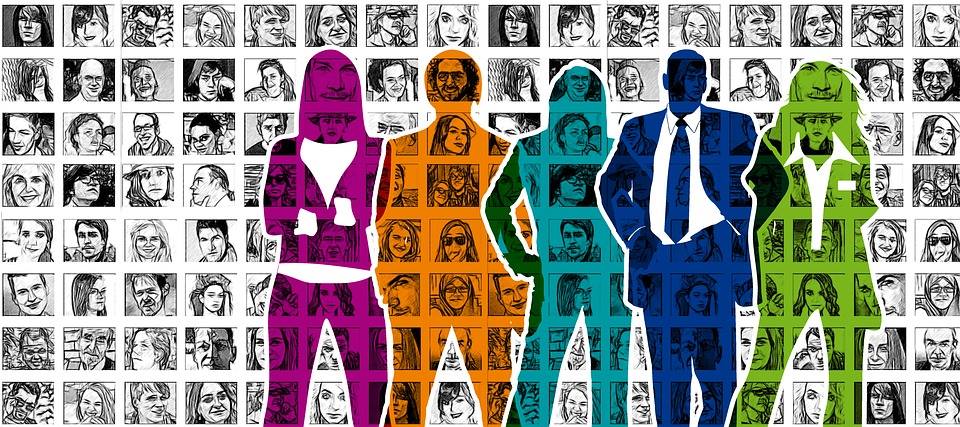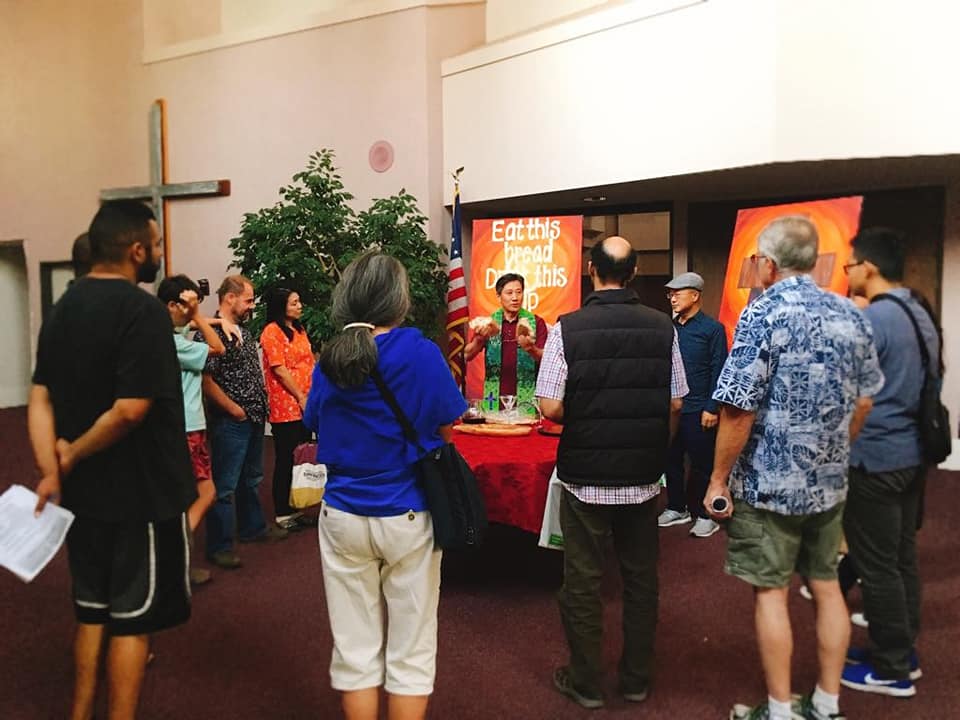Why Mosaics? Rethinking Future of Church during the Holy Week

Mosaics provides a unique opportunity to create a “proximity space” where Christians and non-Christians can interact meaningfully with each other (Alan Hirsch, The Forgotten Ways: Reactivating the Missional Church). Mosaics reaches out people through hospitality, enabling Davis Community Church to more fully meet, live with and know its neighbors. Since the original word for hospitality – “philoxenia” — literally means the ‘love of strangers,’ Christians were (and are!) called to an attitude of welcome not only to other believers, but also to those who are `outsiders.’
Mosaics is more than simply a new nonprofit; it is a “proximity space” where ministry can be carried out as we seek to engage the wider community of Davis and surrounding cities. Mosaics is a new expression of Christianity that responds to changing culture in dynamic ways.

Dr. Diana Butler Bass says in her book, Grounded: Finding God in the World-A Spiritual Revolution, “When the Bible is read from the perspective of divine nearness, it becomes clear that most prophets, poets, and preachers are particularly worried about religious institutions and practices that perpetuate the gap between God and humanity, making the divine unapproachable or cordoned off behind cadres of priestly mediators, whose interest is in exercising their own power as brokers of salvation. The biblical narrative is that of a God who comes close, compelled by a burning desire to make heaven on earth and occupy human hearts.”
Religion always entails the “3B’s” of believing, behaving, and belonging. Over the centuries, Christianity has engaged the 3B’s in different ways, with different interrogators and emphases. For the last 300 years or so, the questions were asked as follows:
1) What do I believe? (What does my church say I should think about God?)
2) How should I behave? (What are the rules my church asks me to follow?)
3) Who am I? (What does it mean to be a faithful church member?)
But the questions have changed. Contemporary people care less about what to believe than how they might believe; less about rules for behavior than in what they should do with their lives; and less about church membership than in whose company they find themselves. The questions have become:
1) How do I believe? (How do I understand faith that seems to conflict with science and pluralism?)
2) What should I do? (How do my actions make a difference in the world?)
3) Whose am I? (How do my relationships shape my self-understanding?)

The foci of religion have not changed–believing, behaving, and belonging still matter. But the ways in which people engage each area have undergone a revolution.”
Dr. Bass also contends that we need to reverse the three B’s to move the “church as institution” to “religion as spiritual faith.”
| FROM | TO |
| Believing: creed and dogma Behaving: rules and techniques Belonging: being part of community | Belonging: being part of community Behaving: rules and techniques Believing: creed and dogma |
Dr. Bass says, “We no longer live isolated behind boundaries of ethnicity, race, or religion. We are connected in global community. We search the Internet for answers; we ask our Buddhist or Hindu neighbors; we read our own sacred texts and the texts of others; we listen to preachers from the world’s religions. Answers are no longer confined to the opinions of a local priest, mullah, rabbi, or guru. The answers depend on us figuring this out together. This shift in religious consciousness is a worldwide phenomenon, a sort of divine web in which we are tangled.”

Mosaics seeks to move the “church as institution” to “religion as spiritual faith,” placing an emphasis on creating a culture of belonging and knowing one another deeply first. As Dr. Bass so eloquently puts it, “Christianity did not begin with a confession. It began with an invitation into friendship, into creating a new community, into forming relationships based on love and service.”
Mosaics is grounded in the theology that God is with us (Immanuel). As many Gen X-Y-Zers are away from institutionalized churches, there are also great spiritual awakening (counter-movement) of seeking God among new generations. Mosaics are planted to provide places to belong, to practice “common good” in meaningful ways, and places to invite (and/or to encounter with) God in many innovated ways, interwoven with cross-cultural dynamic activities, which are available to anyone, especially Mosaics who are heart-broken and lost in this world, freely without any restrictions.
Mosaics continues to restore the koinonia of the early 1st century movement (Acts 2:42-47), encounter (paga) with God in a daily basis to share everything in common, praising God and enjoying the favor of all the people, which is the authentic agape fellowship instructed by our Lord Jesus Christ. In the new era of paradigm shift, Mosaics will truly be an exciting movement for the church of future.

A new command I give you: Love one another. As I have loved you, so you must love one another. – John 13:34
Pastor Stephen Moon

